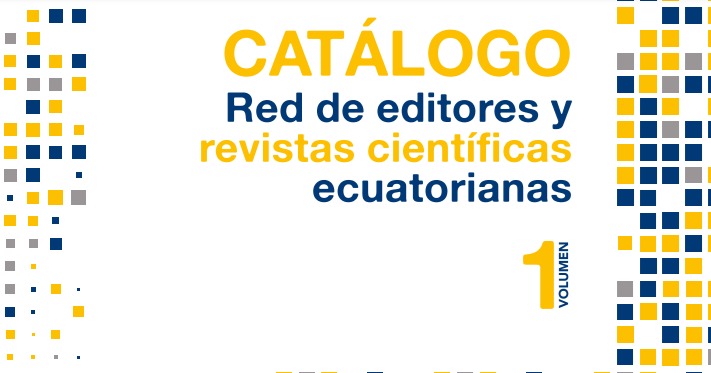PSYCHOSOCIAL CONTRIBUTION IN THE CONTEXT OF THE COVID-19 PANDEMIC
Palabras clave:
Psychosocial, COVID-19, confinement, contributionResumen
At a global level on March 11, 2020, the World Health Organization (WHO) declared the COVID-19 virus a pandemic and highlighted the need to activate and expand emergency response mechanisms worldwide to stop it. In Ecuador, the Ministry of Public Health issued on March 11, 2020, the Ministerial Agreement No. 00126-2020 and established the State of Sanitary Emergency; subsequently, on March 13, President Moreno decreed a State of Emergency; and, with this, the National Emergency Operations Committee -EOC- was activated to coordinate the health crisis due to the effects of this pandemic on vulnerable groups, foreigners residing in Ecuador, as well as people living in extreme poverty. This work aims to provide a psychosocial contribution to work with children and adolescents (CA), contemporary adults and older adults during the confinement generated by COVID-19 and serves to respond assertively to psychosocial emanations and effects that are not only relevant to the health field. The qualitative methodology of descriptive type was used, with direct information of 60 patients in the city of Manta, using psychosocial consultations carried out by professionals in psychology and social work, in which the Hamilton Test, Family Test and Yesavage geriatric depression scale were applied.
Keywords: Psychosocial, COVID-19, confinement, contribution.
RESUMEN:
A nivel mundial el 11 de marzo del 2020, la Organización Mundial de la Salud (OMS) declaró al virus COVID-19 como pandemia y destacó la necesidad de activar y ampliar los mecanismos de respuesta de emergencia a nivel mundial para detenerla. En Ecuador el Ministerio de Salud Pública emitió el 11 de marzo del 2020, el Acuerdo Ministerial No. 00126-2020 y estableció el Estado de Emergencia Sanitaria; posteriormente, el 13 de marzo el presidente Moreno decretó el Estado de Excepción; y, con ello, se activó el Comité de Operaciones de Emergencia –COE- Nacional para la coordinación de la crisis sanitaria por los efectos de esta pandemia en los grupos de atención vulnerable, extranjeros residentes en el Ecuador, así como personas que se encuentran en situación de extrema pobreza. El presente tiene como objetivo brindar un aporte psicosocial para trabajar con niños, niñas y adolescentes (NNA), adultos contemporáneos y adultos mayores durante el confinamiento generado por COVID-19 y sirve para responder de forma asertiva a emanaciones y efectos psicosociales que no solo son de pertinencia en el ámbito salud. Se utilizó la metodología cualitativa de tipo descriptivo, con información directa de 60 pacientes en la ciudad de Manta, mediante las consultas psicosociales realizadas por profesionales en psicología y trabajo social, en lo cual se aplicaron el Test de Hamilton, Test de la familia y la escala de depresión geriátrica de Yesavage.
Palabras clave: Psicosocial, COVID-19, confinamiento, aporte.
Recibido: 28 de septiembre de 2020; Aceptado: 04 de enero de 2021; Publicado: 08 de enero de 2021.
Descargas
Citas
Ávila Cedillo, G. J. (2020). Trabajo social en salud: teoría y praxis innovadora. Margen(97), 1-46. Obtained from https://ceatso.com/wp-content/uploads/2020/08/Trabajo-social-en-salud-teor%C3%ADa-y-praxis-innovadora.pdf
Espada, J., Orgilés, M., Piqueras, J. A., & Morales, A. (2020). Las Buenas Prácticas en la Atención Psicológica Infanto-juvenil ante el COVID-19. Clinica y Salud, 31(2), 109-113. Obtained from https://www.researchgate.net/publication/340967589_Buenas_practicas_en_la_atencion_psicologica_infanto-juvenil_ante_el_COVID-19
Hernández Rodríguez, J. (2020). Impacto de la COVID-19 sobre la salud mental de las personas. Medicentro Electrónica, 24(3), 578-594. Obtained from http://scielo.sld.cu/scielo.php?script=sci_arttext&pid=S1029-30432020000300578
Marquina Medina, R., & Jaramillo-Valverde, L. (2020). El COVID-19: Cuarentena y su Impacto Psicológico en la población. Obtained from https://webcache.googleusercontent.com/search?q=cache:RE44edWZdJsJ:https://preprints.scielo.org/index.php/scielo/preprint/download/452/560/567+&cd=12&hl=es&ct=clnk&gl=ec
Martínez Guzmán, C. (2020). INTERVENCIÓN Y PSICOTERAPIA EN CRISISEN TIEMPOS DEL CORONAVIRUS. Obtained from http://midap.org/wp-content/uploads/2020/04/INTERVENCI%C3%93N-Y-PSICOTERAPIA-EN-CRISIS_Claudio-Mart%C3%ADnez_abrio2020.pdf
Mesías, O. (2010). La investigación cualitativa. Obtained from Universidad Central de Venezuela: en http://bit. ly/30unp
Ramírez-Ortiz, J., Castro-Quintero, D., Lerma-Córdoba, C., Yela-Ceballos, F., & Escobar-Córdoba, F. (2020). CONSECUENCIAS DE LA PANDEMIA COVID 19 EN LA SALUD MENTAL ASOCIADAS AL AISLAMIENTO SOCIAL. Scielo, 22.
Descargas
Publicado
Cómo citar
Número
Sección
Licencia
Derechos de autor 2021 Revista Científica y Arbitrada de Ciencias Sociales y Trabajo Social: Tejedora. ISSN: 2697-3626

Esta obra está bajo una licencia internacional Creative Commons Atribución-NoComercial-CompartirIgual 4.0.
























